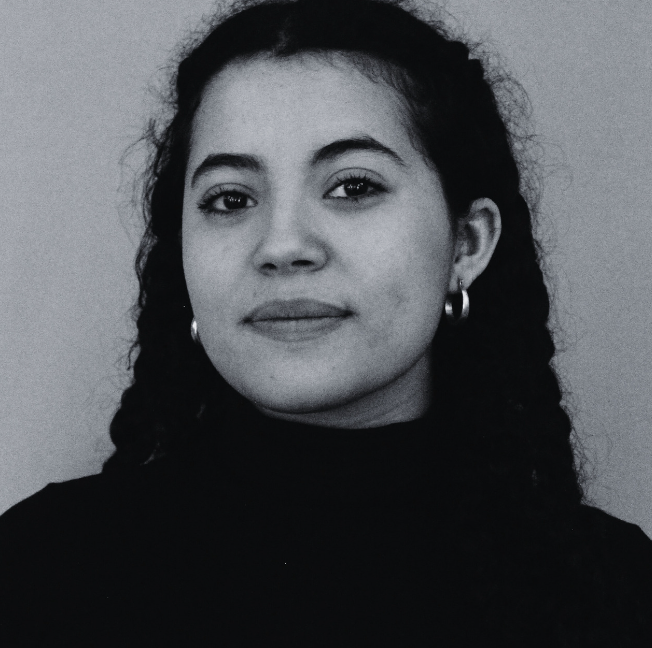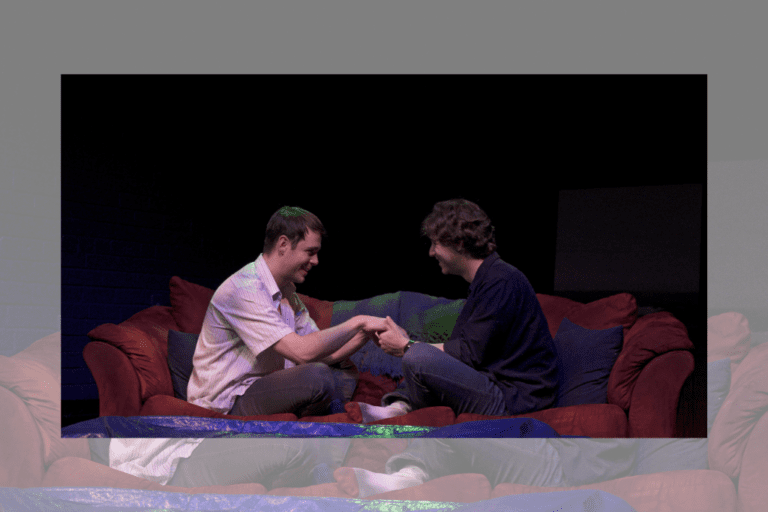REVIEW: Ordinary Days at Shifting Ground Collective
“Heads or tails?,” the audience wonders as four actors flip a coin onstage. What will be the fate of this performance? The excitement in the air is palpable, and you can’t help but feel equally nervous and excited for the performers.
Shifting Ground Collective takes the fleeting experience of a live performance to the next level, as it is more than likely that most nights of this show will be completely unlike the last. Why? The four actors have no idea which character they’ll play until they flip a coin onstage in front of that night’s audience, with four different possible casting outcomes.
Ordinary Days is a tenderhearted, sung-through musical that follows the lives of four 30-somethings in New York City. They reflect on how their “ordinary” lives intertwine — and how they might, perhaps, be extraordinary. Though this concept is nothing revolutionary to theatre, feeling almost like a PG-13 Rent, Adam Gwon’s music and lyrics are full of affection and wit. (And if you’ve been on TikTok during the last couple of years, you’ll recognize a song or two.) Music director Jonah Nung certainly does the original 2010 cast recording justice, with the piano and performers never missing a beat. The cast across the board has beautiful musicality, though at times their mics are a bit too quiet, leading to a few missed moments of song and dialogue over the piano.
This ensemble of emerging and passionate Toronto theatre artists tackle this 50/50 chance performance with seeming ease. As the coin landed on opening night, Randy Lei Chang, Kevin Forster, Shannon Murtagh, and Colette Richardson took a breath in unison and literally slipped into their characters for the night as they put on their character’s costume in front of the audience.
When the first notes of the musical begin, you start to forget that these actors could be any other characters. The chemistry between Chang (Jason) and Murtagh (Claire) is unmistakable. Richardson’s Deb is appropriately uptight and simultaneously full of spunk, anchoring the show. Forster’s Warren is a love letter to childlike hope and sentimentality.
This production transforms a dance studio in West Toronto into an intimate performance space. You can feel the dance floor vibrate beneath you as the actors step and dance across the floor, creating an intimate connection to the action onstage. Audience members are on either side of the room, making an alleyway for the actors. It’s very NYC — you can almost see the dingy fire escapes and hear the buzz of the city. I see the vision.
This stage is a challenge though, with the actors being unable to fully face one side of the audience without having their full backs to the other side. At times the blocking makes it difficult to connect with actors at pivotal moments of the show, when all you can see is the hair on the back of their heads. However, when director Steven Hao (郝邦宇) does use the space to his advantage, he creates dynamic, powerful moments of connection between characters. The moments where all four actors are onstage, in a scene in the Metropolitan Museum of Art especially, are where Hao showcases his directorial punch, as the actors use brass frames to weave in and out of paintings themselves.
Warren notes while walking in the Met and staring at an ordinary painting that “every dot, on its own [is] ordinary and pale, but thrown together one by one, they make this dazzling, joyhouse, hopeful sort of — ”
Though he’s interrupted, the minimalist set by Irene Ly finishes his thought. Four white crates and a staircase on wheels covered with multicoloured polka dots bring a Dr. Seuss quality of memory to the piece. Each character becomes a speck onstage in a sea of other colourful dots coming together to form a big picture.
What really struck me about this production is how beautifully each of the actors fit into their roles on opening night — the unpredictability of each night brings such a thrill to each performance. I can’t help but wonder how the performers might step into other characters on other nights of the run of this show. This production from emerging and talented artists certainly highlights the beauty of life and how “something as simple as the flip of a coin can change everything in an instant,” as written in the producer’s note in the program. If you want to support the future of musical theatre artists and experience an intimate, heartfelt 80-minute show, don’t let Ordinary Days pass you by.
Ordinary Days runs at the Pia Bouman School for Ballet and Creative Movement until August 26. Tickets are available here.
Intermission reviews are independent and unrelated to Intermission’s partnered content. Learn more about Intermission’s partnership model here.















Comments